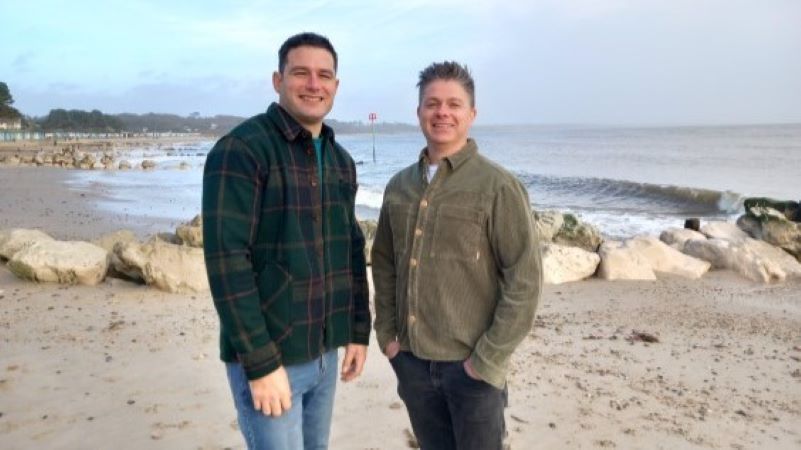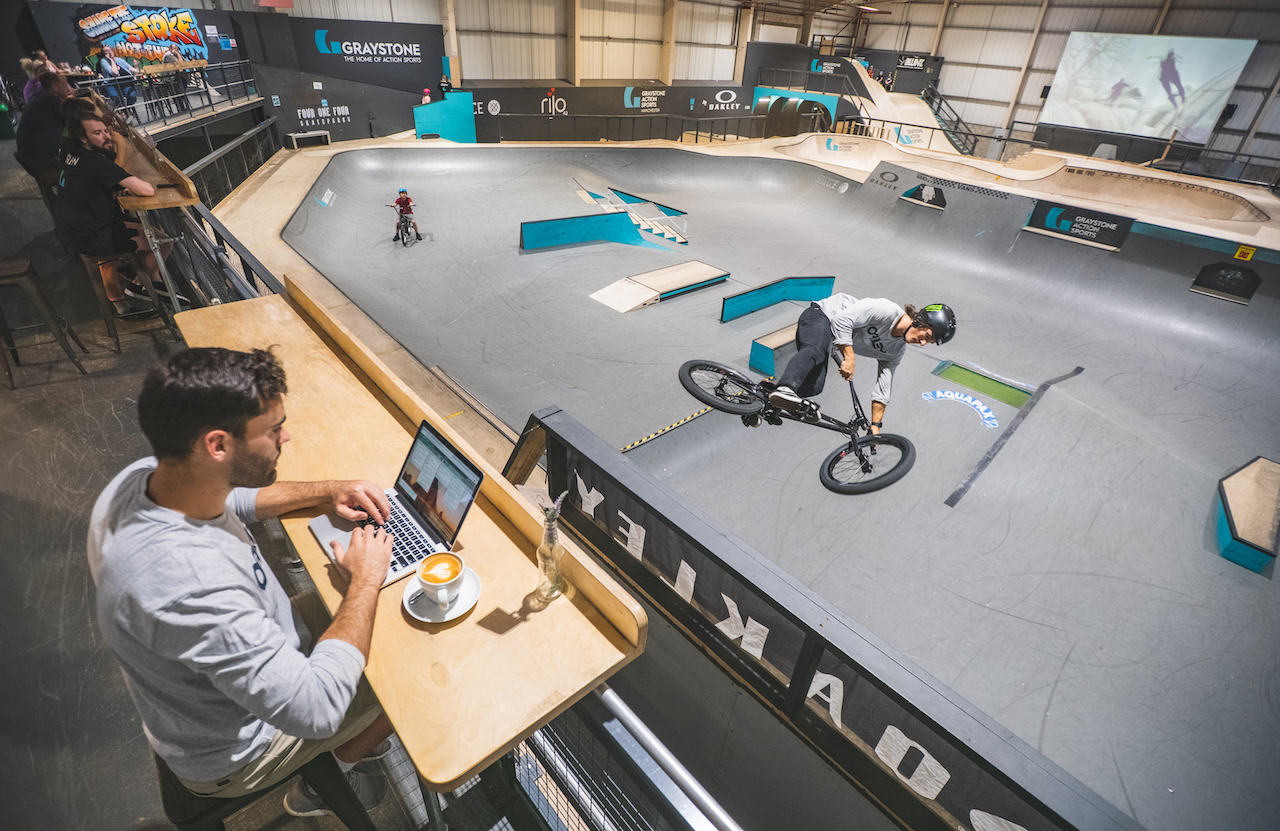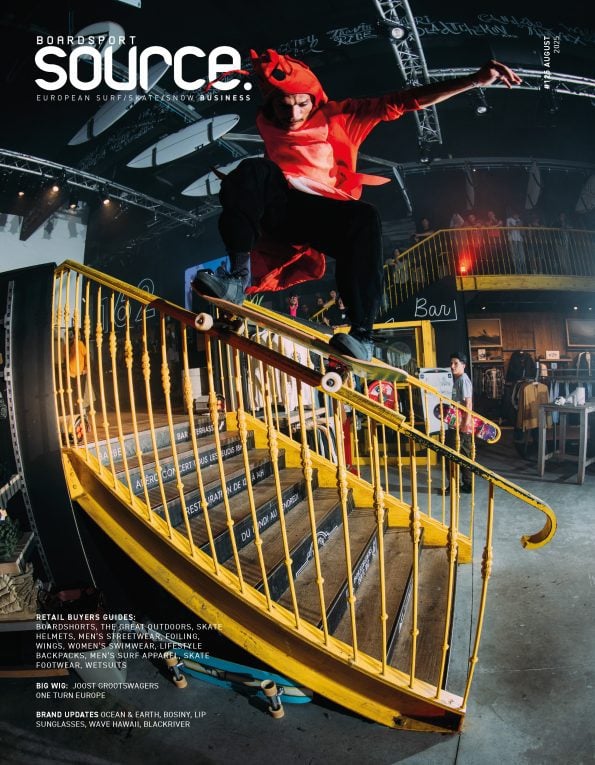
Pier To Pier Founders On Why Now Is The Perfect Time To Start An Action Sports Consultancy
Pier To Pier is a brand-new consultancy offering development, strategy, marketing, and operational advice to the action sports sector. We speak with Co-Founders Adam Della Rocca (ADR) and Ben Livingstone (BL) to find out more about the consultancy, their experience and how they are servicing the industry.
Please tell us about your consultancy, who’s on the team and their background
ADR: We set up Pier To Pier Action Sports consultancy as we feel the action sports industry is underserved when it comes to advice from experienced professionals. The industry is going through a big shift at the moment, with huge levels of investment due to the inclusion of more action sports in the Olympics. It’s important that any new facilities being built are sustainable and well-delivered for the benefit of all users and for the future of action sports.
BL: Although Adam and I have known each other for a long time, after living together in Florida back in 2005, we went our separate ways for around 20 years, before moving back to the same neighbourhood on the Dorset coast in 2021. I have worked in hospitality all my life, within operations around the world for 10 years, before studying and moving into leisure consultancy in 2007 where I worked in London for several global real estate companies, such as CBRE. I am also co-founder of Graystone Action Sports in Manchester, which is one of the top action sports facilities in the UK and feel that experience has given me a real-life perspective on operating a business in this sector.
ADR: My background has also been in hotel management for the last 15 years and I have managed island resorts in Panama and chic downtown boutiques in California. I moved to the UK with my British wife back in 2019 and ran the Ilkley Lawn Tennis & Squash Club, the Wimbledon of the North, where I increased membership from a pandemic low of 450 members to over 2,000.

Graystone Action Sports in Manchester, where Ben is Co-Founder
What led you to start the company?
BL: Participation levels in action sports are soaring with skateboard, freestyle BMX, climbing and surfing now a permanent fixture in the Olympics, alongside freestyle ski and snowboard. Inevitably, there has been an increase in investment in action sports, illustrated by projects such as the £17m development of F51; and we want to help make sure these investments provide self-sustaining facilities across the UK, which don’t continue to rely on public money, particularly during these challenging economic times. We are also keen to bring our expertise to the field: to champion its sustainability, assist professionalising the industry, and making more developments viable.
ADR: Also, our combined experience allows us to provide holistic solutions for potential or existing developments. The leisure segment is experiencing massive growth at the moment as people seek to invest more in experiences and less material things. But the action sports sector is the newest entrant to the hospitality industry and future facilities need to be clean, well-maintained with excellent service levels if they are going to be competitive. Both Ben and I share a passion for action sports, with his love of snowboarding and professional stake in Graystone. My board riding is the surf and skate kind.
What services do you offer and what expertise do you have there?
ADR: We help with pre-opening to ensure the facility opens with the best chance of success from concept development to raising the funds for construction – to making sure an adequate marketing plan is in place to ensure that you have plenty of customers when the doors open.
We also offer a full suite of services that can be used by action sports enterprises at any stage of their journey. This could be the early days of concept development, so feasibility studies, fund-raising and marketing plans, ensuring you have plenty of customers when the doors open. Or it could be later in the journey, helping optimise operations with GAP and opportunity analysis, or even detailed development of best practices and training. The action sports industry is a service industry and can benefit from tried and tested methods of delivery that Ben and I have built a career on successfully delivering.
BL: Our combined experience means we can turn our hand to a lot of different tasks, but they are all geared to adding as much value as possible by complementing the skill set of our client, who is usually the visionary. These tasks consist of:
- Analysing market opportunities
- Producing business plans for investors
- Helping to raise finance for a project
- Financial projections
- Creating a marketing strategy
- Operational analysis and advice
Who are you looking to work for?
BL: Anyone with a vested interest in the industry and looking to make the future brighter for action sports – for us, it’s all about more people doing the sports more often. I think it’s fair to say that the builders/operators of many action sports facilities in the past have, by their very nature, been fuelled by passion, but bored by business. This has meant their facility has been awesome, but susceptible to the classic Alan Sugar business challenges, such as ‘cash is king’ and ‘revenue is vanity, profit is sanity’. We are looking to provide strategic advice (and do the boring bit) for individuals, entrepreneurs, councils, developers, private equity firms, and as part of bigger projects for real estate firms., such as Colliers, CBRE, JLL, etc.
What opportunities do you foresee in the coming years?
BL: At the moment, Team GB are the current world champions in skateboard park with Sky Brown and slope style snowboard with Mia Brookes. Charlotte Worthington won a gold medal in freestyle BMX in Tokyo and Declan Brooks won bronze. We are just over one year away from Paris 2024, when action sports, including skateboard, freestyle BMX, climbing, surfing, and mountain biking, will once again be centre of attention and Team GB will hopefully be in the medals. The attention of the nation will once again be captured and the Olympic effect will mean more people wanting to get involved in these sports. Which means more coaching, more investment and, hopefully, more excellent facilities providing a place for people to practice.
ADR: There is an increasing appetite for participation and development of these sports away from the fringes and into the mainstream. Participation is ramping up and migrating resources and investment from the traditional team-based organised sports to individual pursuits. Entrepreneurs and developers moving into this space benefit from the multi-faceted expertise that we bring to the table: from both an end-user and operator perspective.
What makes you different from competitors?
BL: Firstly, we understand that the action sports sector is a people industry, and this should be reflected in the level of service on offer by facilities these days, which many operators fail to understand. We are also one of the only consultancies in the action sports industry which has been there and done that. And from experience, I know that it’s much easier to sit in a warm office somewhere and cast some financial projections and tell business owners what they should be doing rather than actually doing it. Graystone has not had an easy ride of it since day one, due to various circumstances out of our control, but we have adapted to the challenges to make it work and are still in business.
ADR: Some of the large platform consultancies will take on similar projects and roll-out rubber-stamped solutions from an adjunct “specialist” department handling atypical development projects. The principles may be sound but the deliverables lack nuance and a meaningful understanding of the unique demands of this growing industry. Other industry experts are coming from the performance space and have a unique, but myopic perspective. Our perspective developed and honed in the service industry and adapted to purpose for action sports has the benefit of an operational track-record that substantiates the delivery of our services.
How has the action sports experiences sector been affected by Covid and how are you helping clients futureproof their businesses from lessons learnt?
ADR: Covid was the ultimate “rainy-day” scenario and businesses learned that they needed to build more security in their operation. We look at different areas that could benefit from these lessons and apply those to our clients. Depending on the market, it could be things such as diversification of offering, or investment in energy infrastructure, or even something simple as effective cross-training to reduce labour expenditure and running a more efficient operation.





